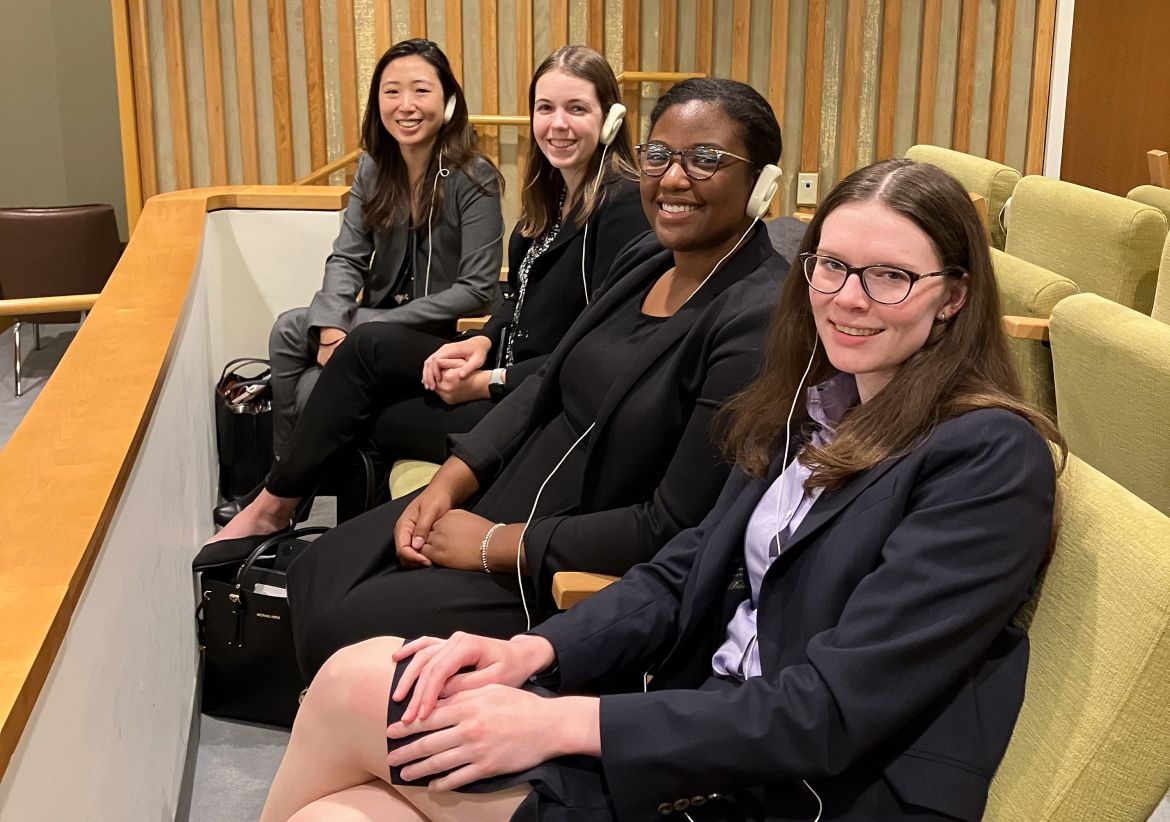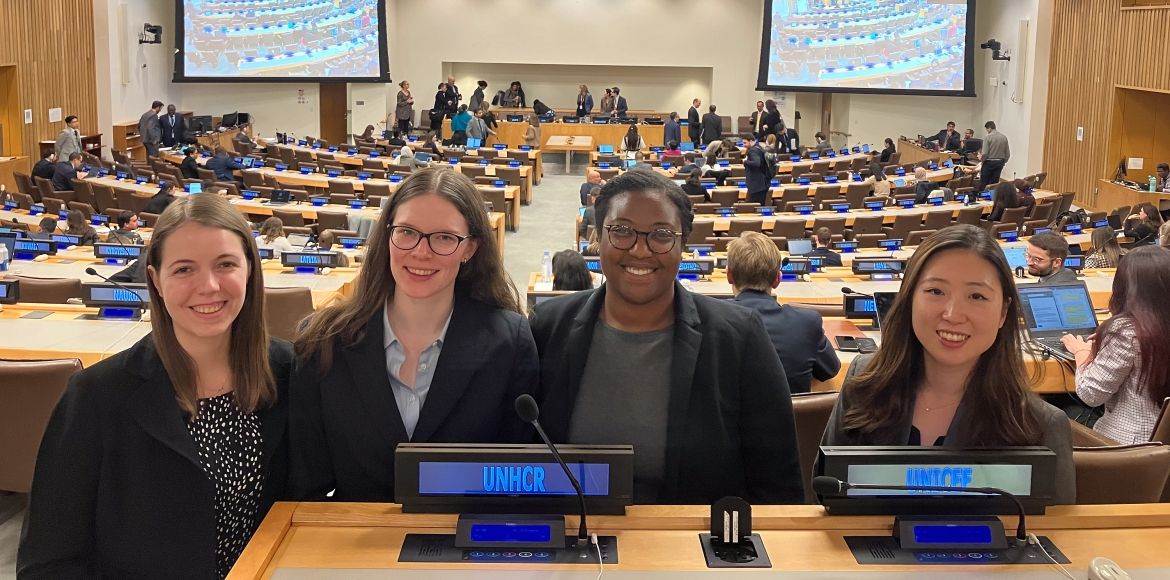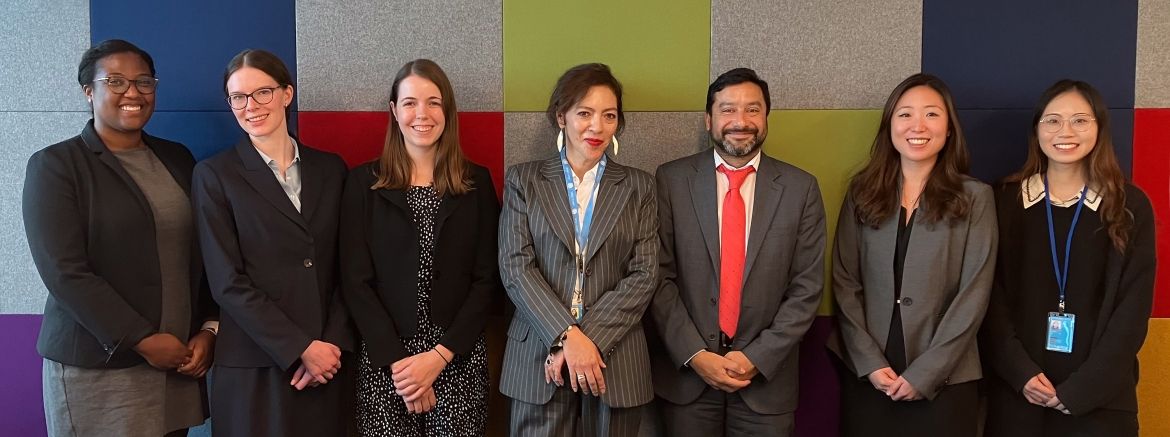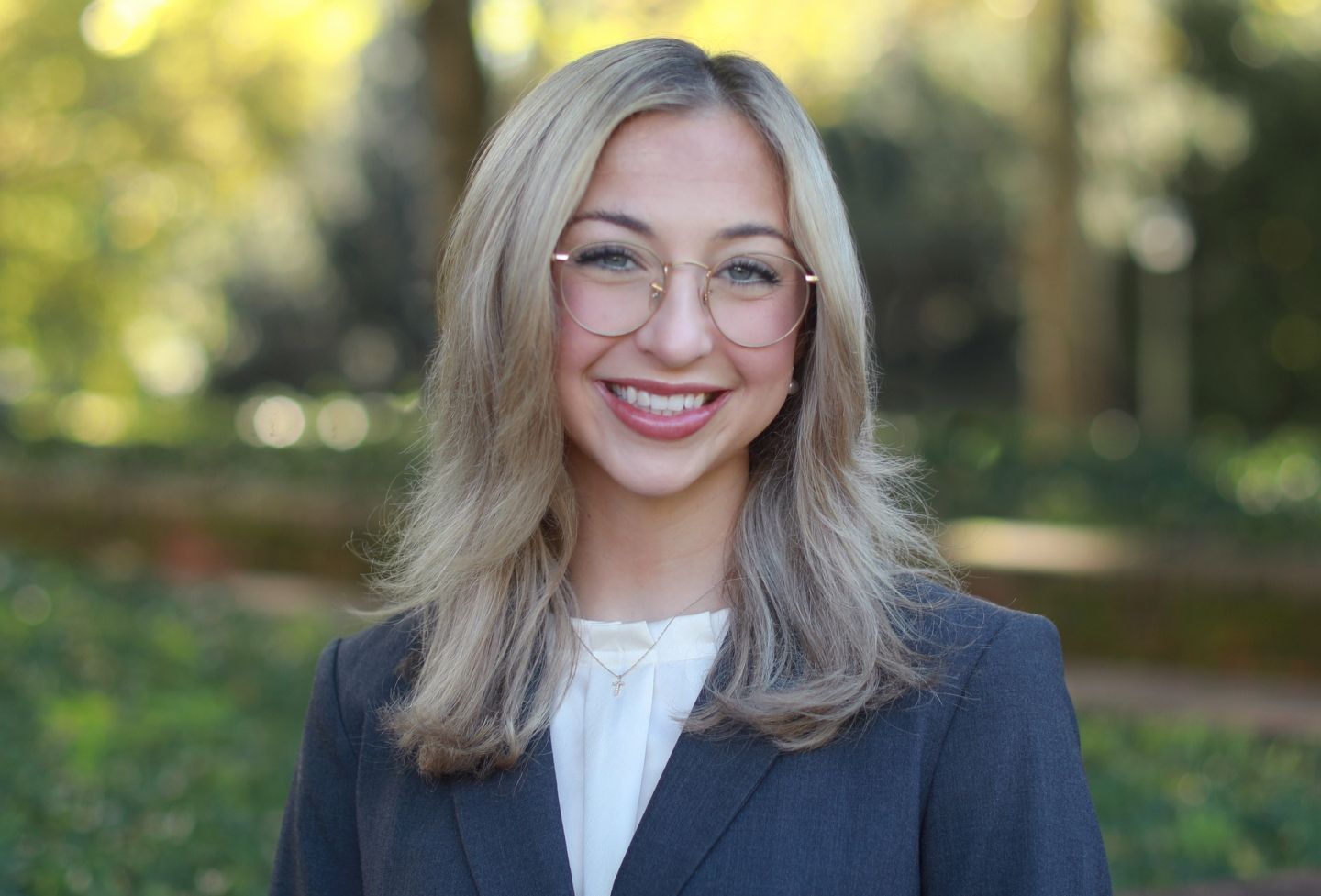Students in the International Human Rights Law Clinic at the University of Virginia School of Law — 3Ls Maya Artis, Camille Blum, Nora Logsdon and Jina Shin — traveled to the United Nations headquarters in New York in October for a unique learning experience.
The clinic’s longstanding engagement with the U.N. Office of the High Commissioner for Human Rights, complemented by collaborations with various U.N. committees and special rapporteurs, has been a cornerstone of its work. This partnership recently led to an invitation to the U.N. headquarters in New York City. The visit offered a unique opportunity for our team to meet our partners face-to-face, witness the U.N.’s operations firsthand and deepen our understanding, thereby reinforcing the foundation for our ongoing collaboration with these critical human rights mechanisms.
The human rights office, which falls under the Secretariat of the U.N., works to promote and protect human rights across the globe. Our U.N. partner focuses on preventing human rights violations and seeking to address them when they occur, both within specific countries and within thematic areas (such as women’s rights, economic rights, the right to education and more).

This semester, our project team conducted extensive research on human rights issues in specific countries, reviewed and edited reports for U.N. human rights officials, and drafted speeches to be given before the U.N General Assembly’s Third Committee. We have learned so much about how the U.N. operates and how to effectively craft messages for our strategic partners.
Our first day began with a meeting with Dominique Bush, the human rights officer in charge of the office’s work before the Third Committee. She explained how the high commissioner’s office and the Human Rights Council interacts with the Third Committee on a high level. We left that discussion with a better understanding of how human rights dialogue fits in the larger context of the U.N.’s mission.
We kept that information in mind as we observed our first Third Committee session. In the meeting, we witnessed the interactive dialogue between independent experts and special rapporteurs for both thematic and country-specific mandates. The Third Committee heard thematic reports from the independent expert on human rights and international solidarity, the independent expert on the effects of foreign debt and the special rapporteur on the human rights of internally displaced persons. The committee also heard country-specific reports relating to the Central African Republic and North Korea.
Each expert and special rapporteur had developed their own areas of expertise. For example, the special rapporteur on the human rights situation in North Korea linked human rights with peace and security, and adopted a victim-centric approach to a long-standing mandate.

It was interesting to see how countries engaged on thematic issues as opposed to country-specific mandates. Countries like the Russian Federation and Cuba, which were opposed to unilateral coercive measures such as sanctions, participated throughout the interactive dialogue. Notably, many delegations that contributed substantively on thematic issues, like China and Cameroon, objected on principle to country-specific mandates.
On our second day, we met with a representative of the U.N.’s Women, Peace and Security agenda. Since we have been working with the human rights office to incorporate women’s rights into the ongoing peace processes in North Korea, we felt it was important to hear how other parts of the U.N. were working toward the same mission.
We then attended a roundtable event where representatives from South Korea, Japan and the United States discussed ongoing human rights violations in North Korea and exchanged recommendations on future actions. This was our opportunity to see diplomats at the U.N. “in action,” away from the media and committee rooms.

Our final meeting of the trip was another Third Committee session, where member states discussed, among other things, the ongoing situation in Gaza. Unlike the previous meetings that had very few observers, the viewing box was completely full, with people sitting in the aisles between the seats. While the level of participation from member states varied in previous meetings, almost every member state took to the floor to express their positions on the conflict.
Although states had different opinions on the best way to handle the Israel-Gaza conflict, what remained central was the importance of human lives.
At the end of our short but impactful trip, the whole team left with a renewed sense of purpose for our clinic’s work. We were able to see the real-world results of the reports and speeches that we drafted and had many ideas for how to tackle future projects. Our clients are particularly focused on the lives of women and children, and we will be helping them craft reports for the 2024 session in Geneva. (We even received an invitation to attend that session!)
This was a once-in-a-lifetime experience for all of us on the team. Being in midst of the hustle and bustle of the U.N. those two days was unforgettable. We are so grateful that Professor Camilo Sánchez trusts us with this project and that UVA made our trip possible. And who knows, maybe we’ll be back in action soon!
Founded in 1819, the University of Virginia School of Law is the second-oldest continuously operating law school in the nation. Consistently ranked among the top law schools, Virginia is a world-renowned training ground for distinguished lawyers and public servants, instilling in them a commitment to leadership, integrity and community service.


